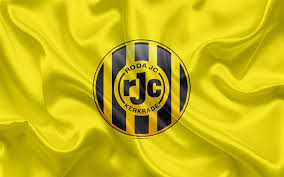Roda JC Kerkrade FC is a renowned football club based in the Netherlands, with a rich history and passionate fan base. Known for their resilience and commitment to developing local talent, Roda JC has established itself as a significant presence within Dutch football. This comprehensive overview explores the club’s history, achievements, culture, and influence, providing an in-depth understanding of what makes Roda JC Kerkrade FC a notable entity in European football.
History and Origins of Roda JC Kerkrade FC
Understanding the roots of Roda JC Kerkrade FC provides valuable insight into its identity and longstanding traditions. The club’s origins are intertwined with the local community and evolving Dutch football landscape nhà cái BK8.
The Founding Years and Early Development
The inception of Roda JC traces back to the early 20th century when local clubs in Kerkrade and surrounding areas sought to establish a unified team to compete at higher levels. Originally formed through a merger of several smaller clubs, the foundation was laid for what would become a prominent fixture in Dutch football.
In 1962, Roda JC officially emerged from this consolidation, combining resources, players, and organizational structure. The club quickly adopted a competitive spirit, aiming for success both regionally and nationally. During its initial decades, Roda JC built a reputation as a resilient side capable of challenging larger clubs, thanks to strategic management and a dedicated fan base.
The early development period was marked by steady progress, facing challenges like financial constraints and stiff competition but always maintaining a focus on growth and stability. These formative years set the groundwork for future successes and established Roda JC as a club committed to fostering local talent and engaging the community.
Key Milestones in the Club’s Evolution
As Roda JC evolved, several milestones punctuated its journey, shaping its identity and impact on Dutch football. Notable moments include promotions to higher divisions, historic cup runs, and the establishment of a youth academy that nurtures future stars.
One significant milestone was their promotion to the Eredivisie—the top tier of Dutch football—in the late 1970s, which marked a new era of national prominence. This elevation allowed the club to showcase its talent on bigger stages, attracting attention from scouts and fans nationwide.
Throughout the 1980s and 1990s, Roda JC experienced periods of both success and rebuilding, often finishing in mid-table but consistently competing at a high level. Their participation in European competitions, such as the UEFA Cup, further cemented their reputation abroad.
Another critical moment was their near-miss for league titles and domestic trophies, which fueled ambitions for future glory. The club also invested heavily in its infrastructure, including stadium upgrades and youth development programs, demonstrating foresight and long-term planning.
The Role of Community and Local Identity
Roda JC’s roots are deeply embedded in the city of Kerkrade, with strong ties to the local community. This connection is evident in the club’s emphasis on fostering local talent, engaging fans through outreach programs, and representing regional pride.
The club’s identity is characterized by resilience, teamwork, and a fighting spirit—values that resonate strongly with the residents of Kerkrade. Despite economic shifts or competitive pressures, Roda JC has remained a symbol of unity and perseverance, embodying the spirit of its supporters.
Over the decades, the club has also faced periods of financial difficulty, yet its community-driven ethos helped weather storms and revive its competitive edge. This symbiotic relationship makes Roda JC more than just a football club; Roda JC Kerkrade FC it is a cultural institution within the local fabric.
